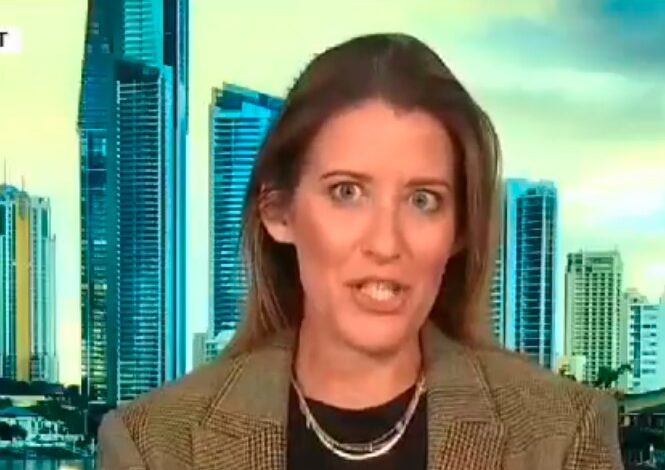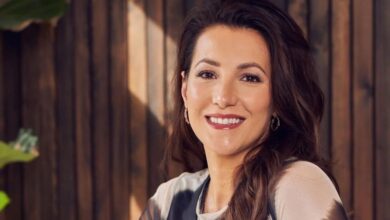Sall Grover: The Founder of Giggle For Girls and Her Legal Battle

Sall Grover, the founder and CEO of Giggle For Girls Ltd Pty, has become a prominent figure in the tech and women’s rights spaces. She is best known for creating Giggle, a social media platform designed exclusively for cisgender women. The app, which was launched in June 2019, has sparked significant debate due to its approach to gender and its controversial use of facial recognition technology to verify users’ sex assigned at birth. This verification system led to backlash from the transgender community, eventually resulting in a legal case that would define much of Grover’s legacy.
In this article, we will explore Grover’s professional journey, the controversies surrounding Giggle, and the legal battles she faces. We’ll also take a look at her education, her previous career as a screenwriter, and her current involvement in crowdfunding for the appeal of her legal case.
The Early Years: From Screenwriting to Entrepreneurship
Before becoming a tech entrepreneur, Sall Grover spent nearly a decade working in Hollywood as a screenwriter. Her experience in the film industry helped her hone her storytelling skills, which she later applied to the development of Giggle. Grover’s experiences in Hollywood also exposed her to the challenges and opportunities that come with building a business, particularly within male-dominated industries.
Her time in Hollywood was formative and laid the foundation for her entrepreneurial spirit. This exposure to the dynamics of the film industry influenced her decision to pursue a different path and, eventually, launch Giggle. The app, designed to cater to cisgender women, was born out of her desire to create a safe and inclusive space for women online.
The Birth of Giggle For Girls
In June 2019, Giggle For Girls Ltd Pty was officially founded by Grover. The social media app’s main goal was to provide a platform where women could connect with others in a secure and women-only environment. Unlike other mainstream social platforms, Giggle used advanced facial recognition technology to verify that its users were assigned female at birth.
While the intention was to create a safe space for women, the app quickly came under fire from the transgender community. Many felt that the platform was discriminatory and harmful to transgender women. Critics argued that the facial recognition system that verified sex assigned at birth was exclusionary and violated the rights of transgender individuals who were not assigned female at birth.
Despite facing widespread criticism, Grover remained firm in her stance on maintaining a women-only space for cisgender women. She defended her decision to create a platform that would exclude transgender women, citing the importance of safeguarding spaces where women could share their experiences without fear of harassment.
The Legal Battle: Tickle v. Giggle
The controversy over Giggle’s policies reached a boiling point when Roxanne Tickle, a transgender woman, was denied access to the app. Tickle filed a legal complaint, arguing that the app’s exclusionary policies were discriminatory and violated her rights as a transgender individual. The case, known as “Tickle v Giggle”, became a landmark legal battle that attracted significant public attention.
In August 2024, the Federal Court of Australia ruled in favor of Tickle, determining that Grover and Giggle had unlawfully discriminated against Tickle by refusing her access to the platform. The court ordered Grover to pay A$10,000 in damages to Tickle. This ruling was a blow to Grover, who expressed her belief that the case had broader implications for women’s rights, particularly the right to have female-only spaces.
The decision was met with mixed reactions. Supporters of Tickle hailed the ruling as a victory for transgender rights, while Grover’s supporters argued that the judgment undermined the ability of women to create and protect safe spaces that were exclusively for cisgender women.
Sall Grover’s Response: Crowdfunding for the Appeal
Following the court’s decision, Sall Grover made it clear that she intended to appeal the judgment. Grover’s decision to pursue an appeal was not only about fighting the legal battle but also about defending her vision of creating women-only spaces in the digital world.
To fund the appeal, Grover launched a crowdfunding campaign aimed at raising the necessary funds to cover the legal costs. The initial goal was to raise A$850,000, and as of the latest update, the campaign had raised A$273,105.
Grover’s campaign emphasized the importance of preserving women-only spaces, especially in the context of online platforms. She framed the legal case as one that would have far-reaching consequences for women’s rights and the future of single-sex spaces. The outcome of the appeal, which is scheduled for April 12, 2025, could set a precedent for how gender identity is treated in legal and social contexts moving forward.
Education: The Foundation of Sall Grover’s Career
Sall Grover’s academic journey began at Bond University, located on the Gold Coast of Queensland, Australia. There, she earned a Master’s degree in Journalism. This education provided her with the skills necessary to succeed in the competitive and often cutthroat world of the media industry. Grover’s background in journalism and storytelling also played a significant role in her ability to build Giggle and communicate her vision to a global audience.
Grover’s journey from a screenwriter in Hollywood to a tech entrepreneur highlights her resilience and willingness to tackle new challenges. Her decision to enter the tech industry, despite having no prior experience, exemplifies her entrepreneurial mindset and her desire to create a product that aligned with her values.
Personal Life: Sall Grover’s Partner and Family
While Sall Grover is known for her professional achievements and legal battles, she also leads a personal life that has garnered attention. She is currently in a relationship with her boyfriend, who has expressed strong support for her ventures, including the controversial Giggle app. Grover has also mentioned that her boyfriend has become “obsessed” with her work and has even had his Instagram algorithm influenced by her endeavors.
In addition to her relationship, Grover became a mother in July 2022, giving birth to a daughter. This new chapter in her personal life has undoubtedly added complexity to her role as both a businesswoman and a mother. Balancing the demands of her company, her legal battles, and her personal life has been a challenging but rewarding experience for Grover.
Conclusion: The Future of Sall Grover and Giggle
Sall Grover’s journey from screenwriter to CEO of Giggle For Girls has been a rollercoaster of triumphs, controversies, and legal challenges. Her commitment to creating a platform specifically for cisgender women has sparked important debates about gender, rights, and the role of technology in our lives.
As Grover prepares to appeal the court’s decision in the Tickle v Giggle case, the outcome of the legal battle could have significant ramifications for how online spaces are regulated in the future. Regardless of the outcome, Grover’s influence on the tech and women’s rights landscape is undeniable, and her story continues to unfold in the public eye.
For now, she remains focused on her mission to create safe spaces for women, fighting to protect her vision and ensure that women-only spaces continue to exist in the digital world.



